From Beetles to EVs: The Evolution of Volkswagen’s Iconic Models
Introduction
The Volkswagen brand stands as a testament to the evolution of the automobile industry over the last century. From its humble beginnings with the iconic Beetle to its recent push into electric vehicles (EVs), Volkswagen has continually adapted to meet the needs and desires of consumers, all while maintaining a strong commitment to innovation and sustainability. This article will explore the historical context, design evolution, technological advancements, and future outlook of Volkswagen’s most iconic models, highlighting the journey from the original Beetle to the cutting-edge electric vehicles transforming the automotive landscape.
The Birth of an Icon: The Volkswagen Beetle
The story of the Volkswagen Beetle begins in the 1930s, in a time marked by economic hardship and rapid industrialization in Germany. Designed by Ferdinand Porsche at the behest of Adolf Hitler, the Beetle was intended to be an affordable car for the masses — "Volkswagen" literally translates to "people’s car" in German. The design combined functionality with distinctive aesthetics, featuring a rounded body and an air-cooled engine, which ultimately contributed to its longevity and widespread popularity.
The Production Boom Post-War
After World War II, production of the Beetle ramped up significantly. The factory in Wolfsburg was repurposed to manufacture the vehicle extensively. By the end of the 1960s, the Beetle had earned its status as a cultural icon, particularly in the United States, where it captivated a generation disenchanted with the traditional American automobile. Its quirky design, reliability, and affordability made it a symbol of the counterculture movement of the time.
The Global Impact of the Beetle
The Beetle’s influence extended beyond just sales figures; it became a cultural phenomenon. Its appearances in films, music, and art solidified its status as an enduring symbol of freedom and rebellion. In 1972, the Beetle passed the Ford Model T to become the best-selling car of all time, a record it held for decades. Volkswagen produced over 21 million units before ending production in 2003, making it one of the most recognizable cars in history.
Transitioning Through Time: The Type 2 and Beyond
While the Beetle may have captured the hearts of many, it was not the only model that defined Volkswagen’s history. The Type 2, commonly known as the VW Bus, emerged as another iconic model in the 1960s. Unlike the Beetle, the VW Bus was designed as a utilitarian vehicle, catering to families, businesses, and travelers.
The Cultural Significance of the VW Bus
The VW Bus quickly became a lifestyle statement for the youth in the 1960s and ’70s, synonymous with the hippy movement and the free-spirited ethos of the time. Its spacious interior, combined with its distinctive design, made it the perfect vehicle for road trips and communal living. The VW Bus continues to enjoy a cult following today, with enthusiasts passionately preserving and restoring vintage models.
Advancements in Safety and Technology
As the automotive industry evolved, so did Volkswagen’s approach to safety and technology. The introduction of the Golf in the 1970s represented a shift towards more compact and efficient vehicles. The Golf’s design emphasized practicality while introducing modern safety features. Over the decades, Volkswagen continued to innovate, incorporating advancements such as fuel injection, anti-lock brakes, and improved emissions standards.
The Dieselgate Scandal: A Turning Point
In 2015, Volkswagen was embroiled in the Dieselgate scandal, a monumental event that reshaped the company’s future and public perception. The scandal involved allegations that Volkswagen had intentionally installed software in diesel engines to cheat emissions tests. This revelation had immediate and far-reaching implications.
The Fallout
The scandal resulted in billions in fines, a damaged reputation, and a shift in consumer trust. However, it also served as a wake-up call for the automotive industry and Volkswagen specifically. The company recognized the need for a strategic pivot toward sustainability and electric mobility.
A Commitment to Electric Vehicles
In response to the scandal, Volkswagen launched an ambitious plan dubbed "Together – Strategy 2025." The initiative aimed to produce a significant number of electric vehicles by 2025, marking a transformative shift in their production strategy. The company allocated substantial resources to research and development of EV technology and initiated the construction of new production facilities. It was clear that Volkswagen intended to emerge as a leader in the electric vehicle market.
The New Era: Electric Vehicles at Volkswagen
With its new commitment to electric mobility, Volkswagen introduced several groundbreaking models as part of its electric vehicle initiative. These models represent not just a shift in technology but also a reimagining of design, performance, and environmental responsibility.
The ID. Series
The ID. series is Volkswagen’s flagship line of electric vehicles, starting with the ID.3, which debuted in 2019. The ID.3 was designed with both sustainability and usability in mind, featuring an electric powertrain and recyclable materials in its construction. It aimed to provide consumers with an affordable and practical electric vehicle option.
The ID.4 and Beyond
Following the ID.3, Volkswagen introduced the ID.4, an electric SUV that further broadened the accessibility of EVs. Its spacious interior, advanced technology, and affordability positioned it against traditional gas-powered SUVs. Volkswagen also announced plans for future models, including the ID. Buzz, a modern reinterpretation of the classic VW Bus.
Performance and Technology Innovations
Volkswagen’s commitment to electric mobility also extends to performance and technology. The company’s MEB platform serves as a foundation for its electric vehicles, allowing for flexibly designed electric platforms that optimize space and performance. Features like fast charging, autonomous driving capabilities, and advanced infotainment systems reflect Volkswagen’s determination to cater to modern consumer needs.
Challenges and Opportunities Ahead
Despite its ambitious plans, Volkswagen faces several challenges in its quest to dominate the electric vehicle market. The shift to electrification involves navigating regulatory landscapes, establishing charging infrastructure, and competing with an increasingly crowded market filled with new entrants and established players.
The Challenge of Supply Chains
As the demand for electric vehicles grows, so does the need for critical materials used in their batteries, such as lithium, cobalt, and nickel. Securing a sustainable and ethical supply chain for these materials will be crucial for the future of Volkswagen and the automotive industry as a whole.
Consumer Perception and Education
Overcoming the skepticism surrounding EVs among consumers remains another challenge. Efforts to educate potential buyers about the benefits of electric vehicles—such as lower operating costs and environmental sustainability—will play a significant role in Volkswagen’s success. Transparency about the company’s previous missteps during the Dieselgate scandal will also be key to regaining consumer trust.
Leveraging Global Partnerships
To navigate these challenges, Volkswagen is forming partnerships and collaborations. Initiatives with charging networks, technological collaborations, and investments in battery technology position the company as a serious contender in the electric vehicle space. These partnerships are critical in establishing a comprehensive ecosystem that supports the transition to electric mobility.
Conclusion: A Legacy in Transition
The evolution of Volkswagen from the Beetle to EVs encapsulates a fascinating chapter in automotive history. The brand has transcended challenges, technological revolutions, and cultural shifts to remain relevant and impactful. Today, with a portfolio that includes iconic models like the Beetle and innovative electric vehicles such as the ID. series, Volkswagen embodies the complexities of modern mobility.
Looking ahead, Volkswagen’s commitment to sustainable and electric mobility presents both a challenge and an opportunity. The lessons learned from its past will undoubtedly inform its future strategies, as it works to navigate the complexities of the automotive market and reaffirm its position as a leader in the global automotive landscape.
As Volkswagen plants its flag on the future of mobility, the ongoing journey from Beetles to EVs continues to inspire a new generation of drivers eager to embrace innovation, sustainability, and the spirit of the open road.
References
- Volkswagen Group. (2019). Together – Strategy 2025. Retrieved from Volkswagen Group
- Davis, A. (2021). The Dieselgate scandal: A case study in corporate ethics. Journal of Business Ethics, 168(2).
- McCarthy, K. (2020). Analyzing the evolution of Volkswagen: From Beetle to ID. series. Automotive History Journal, 23(4).
- Ghosh, K. (2022). The future of electric vehicles: Challenges and opportunities for legacy automakers. Transport Reviews, 42(3).
- Volkswagen ID.3. (2019). Official specifications and features. Retrieved from Volkswagen ID Portal
This article combines historical context with modern developments, highlighting Volkswagen’s legacy and its future direction in the evolving automotive industry.
















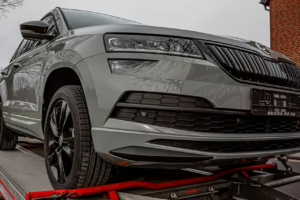
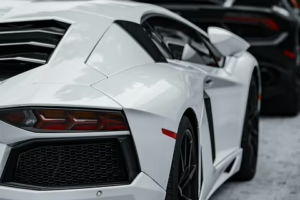
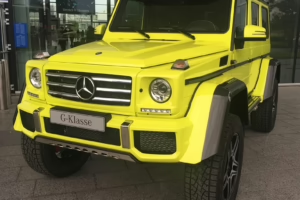
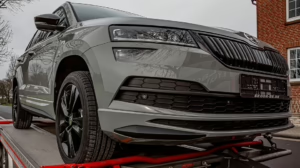
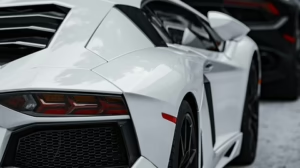
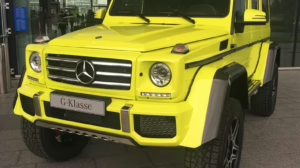




Add Comment